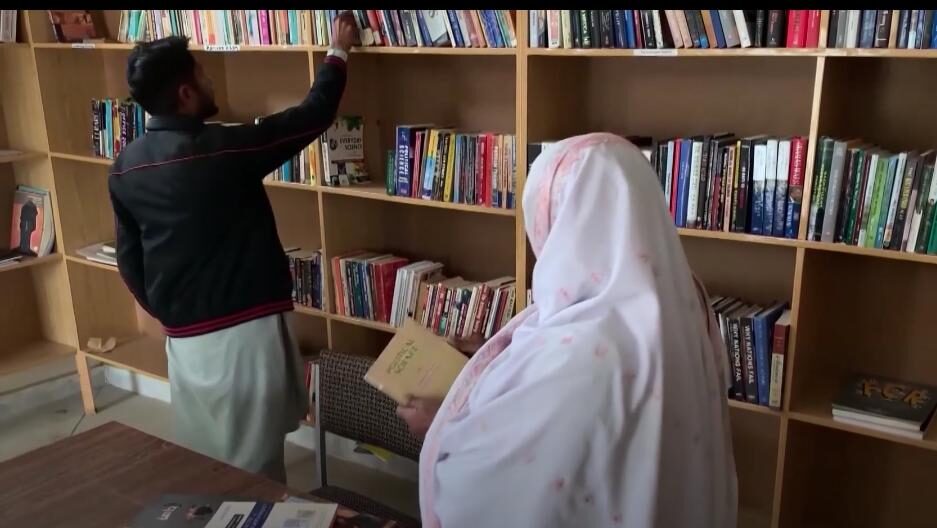One Man’s Calling To Educate Women, Children in Tribal Pakistan
A visionary educator provides access to knowledge and skills in regions devastated by conflict and terrorism
Over the past decade, Pakistan’s tribal areas along the Afghanistan border have endured the scars of conflict and terrorism. These regions, once besieged by relentless violence, became a focal point of Pakistan’s military campaign against armed groups, including the Tehreek-e-Taliban Pakistan (TTP). The crackdown on militant strongholds escalated hostilities, forcing millions to flee their homes in one of Asia’s largest internal displacements. Entire communities were uprooted, and educational institutions were reduced to rubble, leaving a generation grappling with despair and lost opportunities.
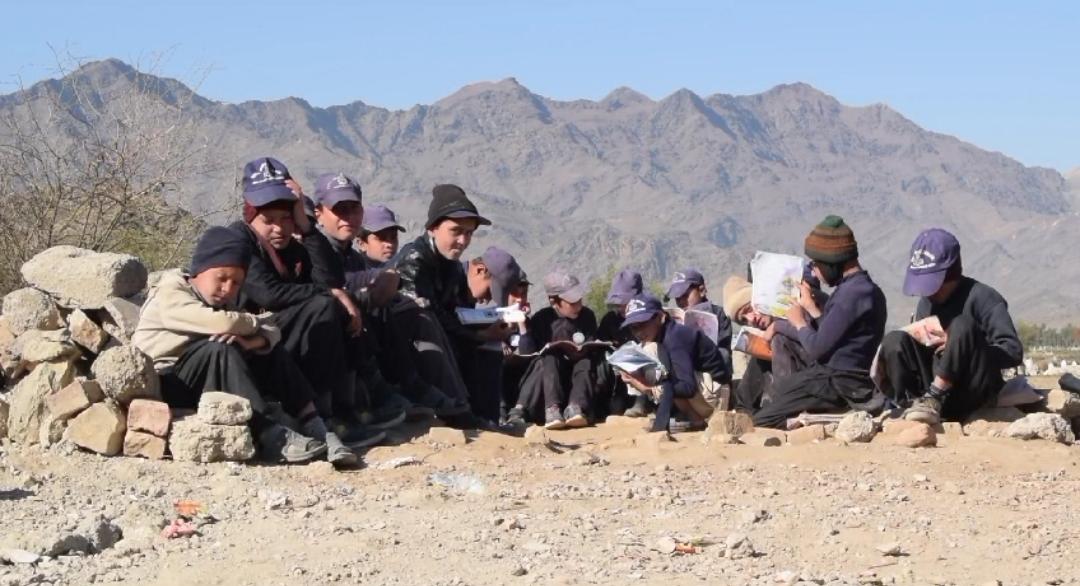
Pakistani children study over the rubble of a destroyed school. (Courtesy Najeeb Ullah)
Amid this backdrop of destruction and fear, a young visionary from Mohmand District, Najeeb Ullah, chose a different path—one of hope and resilience. In 2014, at just 17 years old, he launched the region’s first-ever “Mashaal” library to restore access to education in his conflict-ridden homeland. The word “mashaal,” meaning “torch” in Pashto, symbolizes illumination in the darkest times—a fitting metaphor for Najeeb’s mission.
A Bold Beginning
Najeeb, who pursued a master’s degree in conflict and peace studies from the National Defense University in Islamabad, was inspired by his own struggles. Recalling his early days, he told The Media Line: “In 2014, while traveling to Peshawar to purchase books for my Grade 12 exams, I realized how inaccessible education had become for students in war-torn areas.” That moment of clarity drove him to collect books and establish a library, enabling economically disadvantaged students to continue their studies.
Despite limited resources, Najeeb’s determination prevailed. What began as a small library has since evolved into a community cornerstone. By 2021, he expanded his efforts to establish the region’s first children’s library. In January 2024, he launched the Mashaal Skills Center for Women, a modest operation housed in the veranda of his mud home, around 14 miles northwest of Peshawar. This center equips women with skills like sewing and crafts, empowering them to overcome cultural and economic barriers.
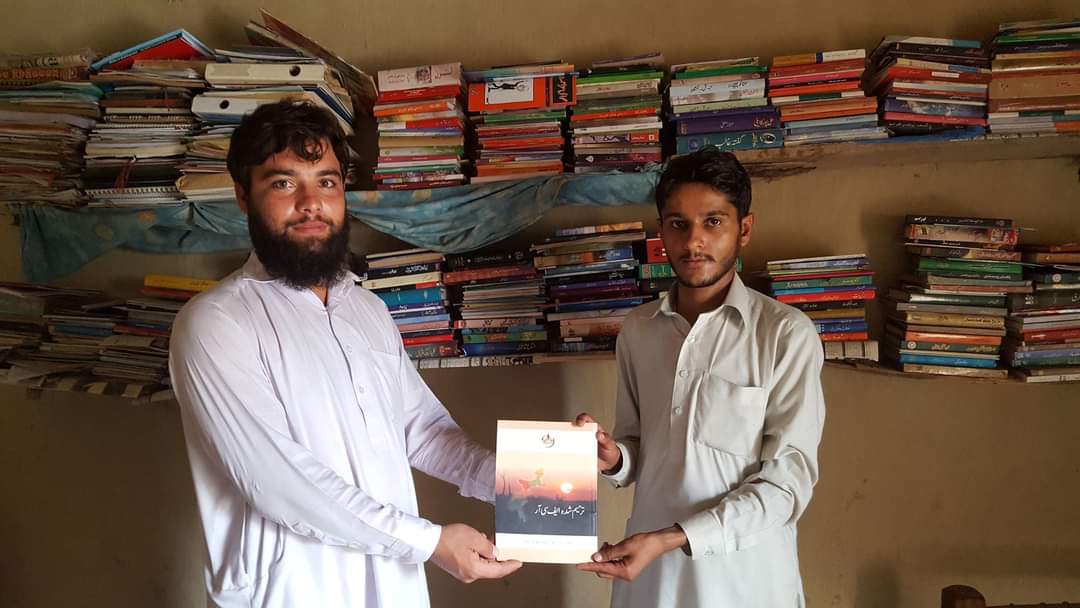
A local resident donates a book to Najeeb Ullah for Mashaal Library. (Courtesy Najeeb Ullah)
Libraries That Inspire
Today, Najeeb’s two libraries serve as vital hubs of learning. Thousands of books now line their walls, offering students the chance to pursue education despite the absence of functioning schools. In 2015, he introduced an innovative mobile book delivery service using two motorcycles, ensuring that even students in remote areas could access reading materials. “Countless women benefit from this service,” Najeeb shared, emphasizing the importance of reaching those most affected by conflict.
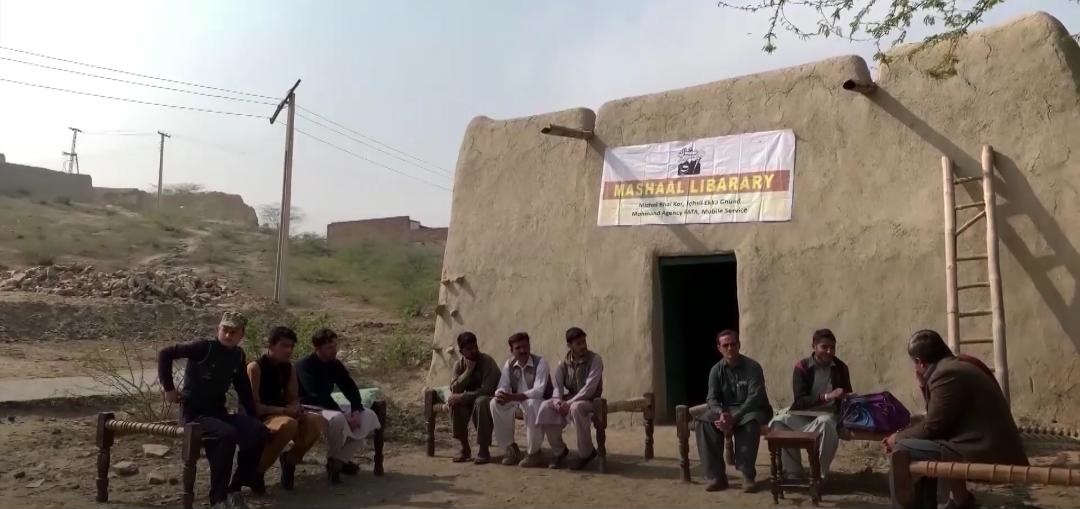
Villagers sit outside Mashaal Library. (Courtesy Najeeb Ullah)
The library is a beacon of hope and knowledge for the youth in my area, guiding them away from fear and toward mental development
Najeeb’s long-term vision is ambitious: to create what he hopes will be “the world’s largest library of its kind” and establish a university for women that offers free education. Reflecting on his journey, he said, “The library is a beacon of hope and knowledge for the youth in my area, guiding them away from fear and toward mental development.”
This holiday season, give to:
Truth and understanding
The Media Line's intrepid correspondents are in Israel, Gaza, Lebanon, Syria and Pakistan providing first-person reporting.
They all said they cover it.
We see it.
We report with just one agenda: the truth.


Empowering Women Through Skills
The trainees are now sewing clothes, designing unique garments, and even crafting purses from woolen threads. This has unlocked new opportunities for economic independence.
The Mashaal Skills Center has already transformed the lives of over 100 women and girls, including widows and orphans, in just one year. Najeeb explained, “The trainees are now sewing clothes, designing unique garments, and even crafting purses from woolen threads. This has unlocked new opportunities for economic independence.”
Both boys and girls come to study at the Mashaal Children’s Library, Jan. 7, 2025. (Courtesy Najeeb Ullah)
He envisions the center as a catalyst for change, providing women with tools to break cycles of poverty and ignorance. “By equipping women with essential skills, we are creating a ripple effect of progress and dignity,” he said.
Voices of Change
The impact of Najeeb’s initiatives resonates deeply within the community. Shafi Ullah, a postgraduate scholar from Mohmand, credited Mashaal Library with enabling him to complete his education after years of disruption. “Hundreds of young people, including myself, have relied on this library to continue learning in the absence of schools,” he told The Media Line.
Libraries and study centers are essential for rebuilding the social and educational fabric destroyed by years of conflict. They provide children with constructive activities, steering them away from terrorism.
Arshad Khan, a tribal leader from Mohmand, highlighted the broader need for such centers across Pakistan’s tribal belt. “Libraries and study centers are essential for rebuilding the social and educational fabric destroyed by years of conflict. They provide children with constructive activities, steering them away from terrorism,” he said.
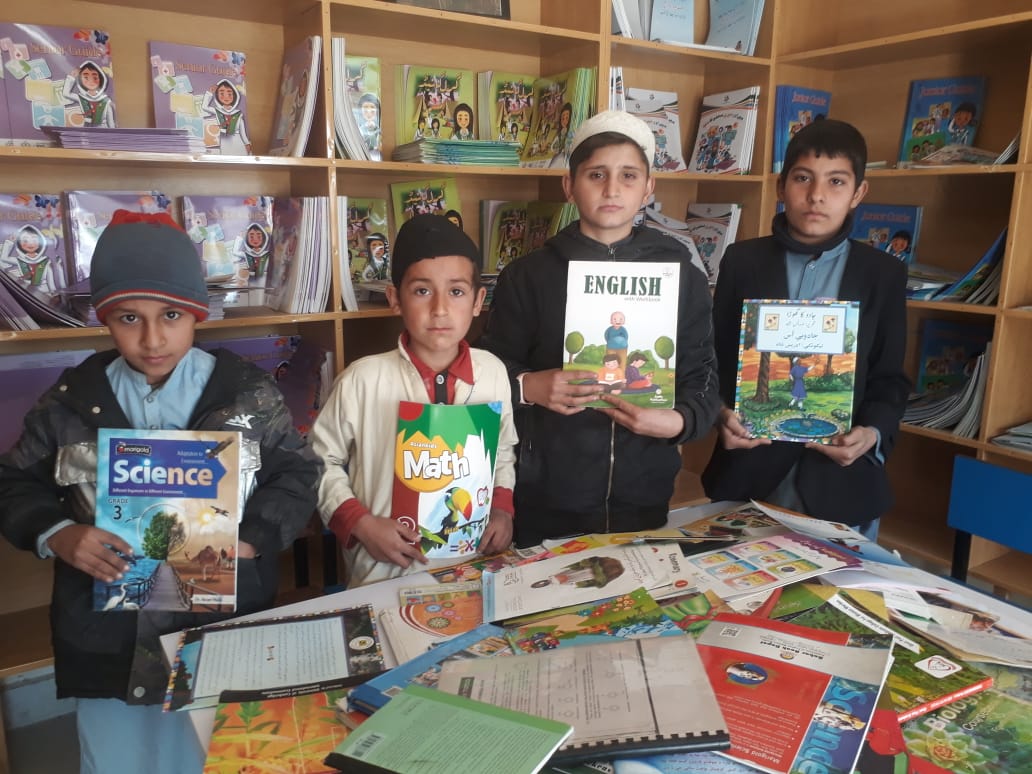
Children at Mashaal Library. (Courtesy Najeeb Ullah)
The skills center has similarly empowered women. Sana Gul, a schoolteacher from Mohmand, shared how Mashaal Mobile Library helped her complete her education without defying tribal customs. “I went on to secure a government job and now dedicate myself to teaching girls with the same passion that once paved the way for my own education,” she said.
A Call for Support
Experts agree that grassroots efforts like Najeeb’s are vital for the region’s recovery. Rehmat Mehsud, an Islamabad-based analyst on tribal affairs, noted, “Mashaal projects have tangibly impacted underserved communities by offering education and skill development. These initiatives fill critical gaps in areas where government support is lacking.”
Mehsud called for greater federal and provincial backing for youth-led initiatives, emphasizing their potential to foster resilience and stability in conflict-affected regions. “By recognizing and funding such efforts, the government can inspire others to contribute, promoting sustainable development and social harmony,” he said.
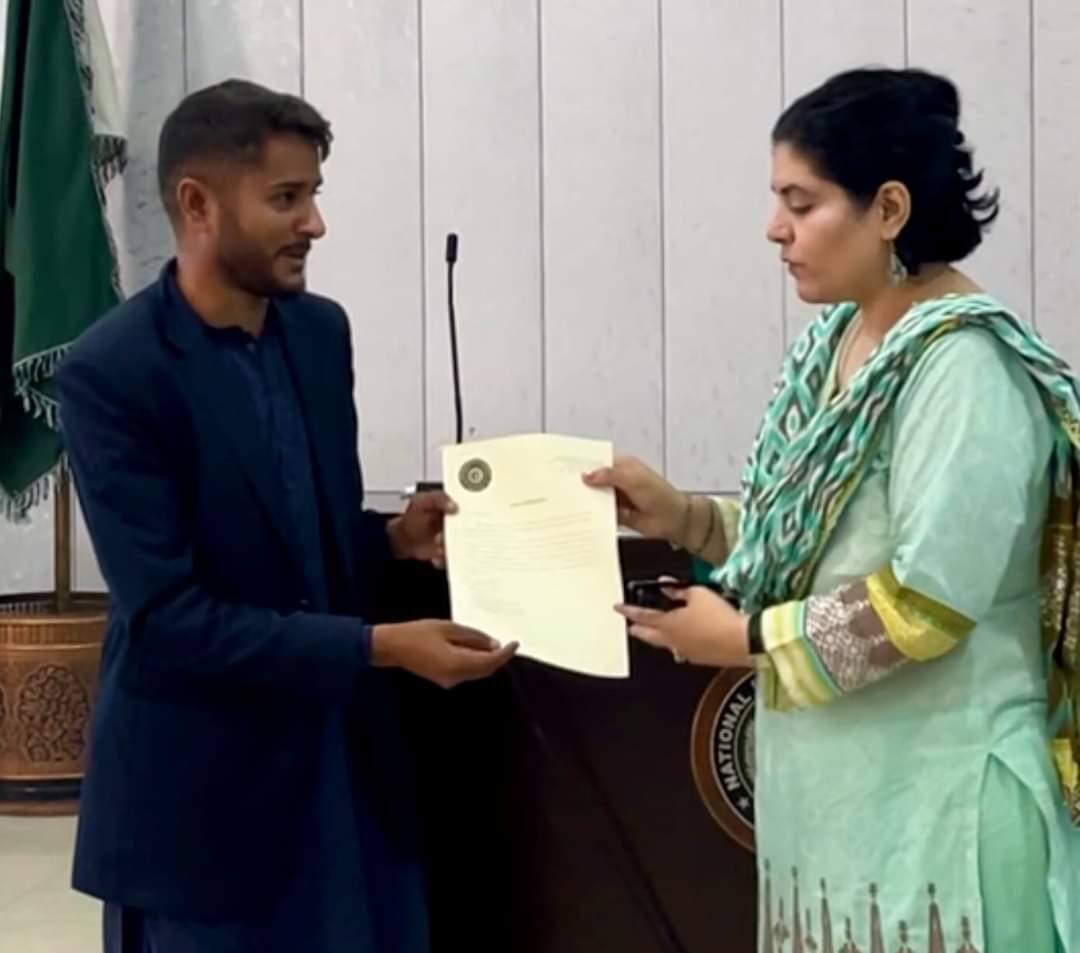
Professor Dr. Arshi Saleem Hashmi, dean of the Faculty of Contemporary Studies at the National Defense University, presents a certificate of appreciation to Najeeb Ullah in recognition of his outstanding contributions through Mashaal welfare projects. (Courtesy Najeeb Ullah)
A Legacy of Hope
Najeeb Ullah’s journey is a testament to the transformative power of education and determination. Despite the challenges posed by terrorism, poverty, and deeply rooted cultural barriers, his efforts have ignited hope in a region long overshadowed by despair.
Through libraries and skill centers, Najeeb is not only rebuilding lives but also shaping a brighter future for Pakistan’s tribal areas—one book and one skill at a time.
